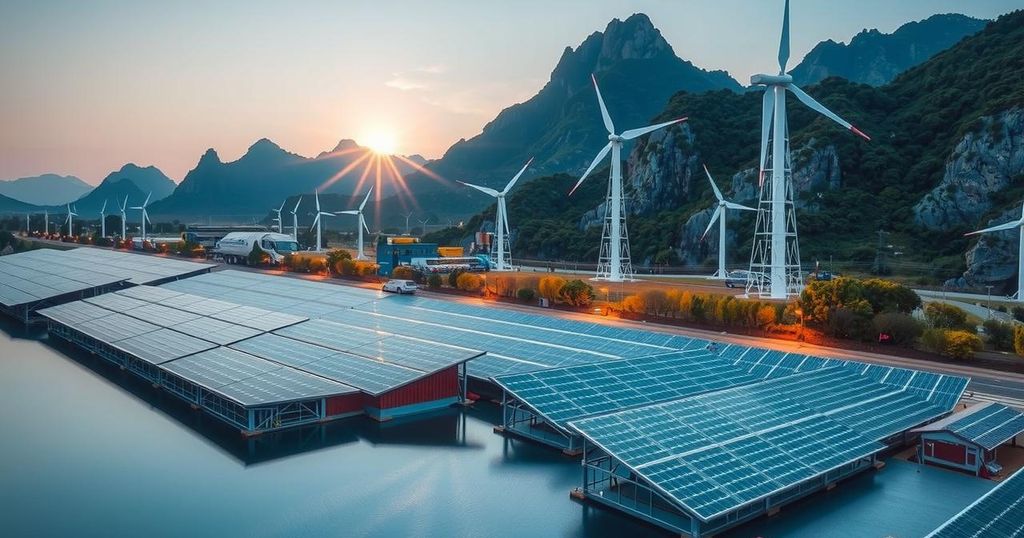Donald Trump’s presidency is poised to negatively impact global climate change efforts as he favors fossil fuels and is likely to withdraw from the Paris Agreement. This creates a leadership vacuum that China and the European Union are ready to fill, possibly enhancing China’s dominance in renewable energy. Experts warn that such political shifts could hinder progress in combating climate change, emphasizing the urgency for collective action.
As President-elect Donald Trump prepares to assume office, there is a growing concern regarding his administration’s stance on climate change. Trump has made clear his intent to prioritize fossil fuel interests, vowing to deregulate the industry and denigrate clean energy efforts. With his declaration to become a “dictator” in implementing drilling initiatives and his repeated dismissal of climate change as a conspiracy, the global community is wary of the implications for international climate agreements. Trump’s anticipated withdrawal from the Paris Agreement signals a potentially detrimental shift, leaving the United States as an unreliable ally in global environmental efforts.
In contrast, the European Union and China remain determined to maintain and even strengthen their climate commitments. Experts predict that other nations will step in to fill the leadership void left by the U.S., with countries like China likely reaping the benefits of reduced American competition in renewable energy sectors. As the world’s largest carbon emitter, China is making significant advancements in renewable energy, producing the majority of the world’s solar panels and wind turbines, positioning itself as a formidable actor in shaping global climate politics.
Notably, countries in the Global South are already seeing substantial Chinese investment in renewable projects, fostering China’s image as a leader in climate initiatives. Meanwhile, scientists warn of the urgent need to address climate change, noting that failing to adhere to the 2 degrees Celsius target may lead to catastrophic weather patterns and widespread disasters. Though individual states and private sectors may persist in their environmental efforts, the lack of cohesive national policy under Trump could hinder significant advancements during the critical next four years.
Thus, while the international community continues to tackle climate issues, America’s decisively fossil-fuel-friendly trajectory under Trump threatens the collective progress needed to combat climate change effectively.
The article discusses the implications of Donald Trump’s presidency on global efforts to combat climate change. His administration’s potential withdrawal from the Paris Agreement and promotion of fossil fuels are contrasted with ongoing commitments by other nations, including the European Union and China. The rise of China as a renewable energy leader amid U.S. retreat signifies a significant shift in global climate leadership.
In summary, Donald Trump’s impending presidency poses challenges to the global response to climate change. His administration’s prioritization of fossil fuels and withdrawal from international agreements may result in diminished U.S. leadership on environmental issues. Meanwhile, China and other nations stand poised to seize the opportunity to lead in renewable energy development, highlighting the shifting dynamics of climate action.
Original Source: www.rollingstone.com






